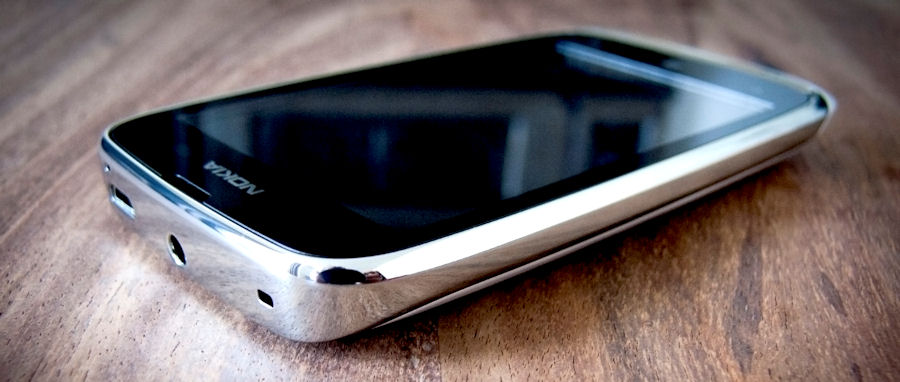It actually makes a fair bit of sense. First of all, the manufacturers (and Microsoft) are not going to throw away the investment in Windows Phone 7. Yes there is the continuation factor of the Windows Phone 7.8 version for those currently with WP handsets, but there is a much bigger market out there.
That's where compatibility becomes very important to the expanded ecosystem. While some coding styles will be restricted to Windows Phone 8 (such as any applications that will use native code, a technique that will be restricted to the newer version of the OS), many will implicitly be backwards compatible to WP7 devices. In the early days of adoption of WP8, developers will want to target both in any case to keep up a decent level of downloads.
I also think that's the reasoning behind Windows Phone 7.8. We already know that the new layout and resizing of the live tiles will be 'back-ported' from Windows Phone. To keep WP7 around, alive, and thriving, alongside Windows Phone 8 will need a constant flow of new and updated apps. A task that would be far easier if the user interface between the two iterations of the platform was not broadly consistent, but very consistent.
At a software level, Windows Phone 7.8 will likely be the layer that 'upgrades' Windows Phone 7.5 so that compatibility back from Windows Phone 8 is a much simpler task to manage for developers and users. It does require a push to get existing devices on to 7.8, but we've seen from the Mango update that pushing a version update to a significant percentage of handsets is achievable by Microsoft and its partners.
 The Samsung Omnia M
The Samsung Omnia M
So why would Microsoft work to keep the older version of their mobile operating system? Mostly to keep the cost down for their partners. Not because of any premium charged on WP8 licences, but to keep the bill of materials down on certain smartphones.
With the reduced requirements on processor, memory, storage, and components, a Windows Phone 7 device is going to be cheaper to manufacture, leading to a cheaper retail price, and opportunities for Windows Phone to challenge in the low end of the market during 2013.
There's some commercial sense here as well, with the flagship devices creating a halo effect and a sense of urgency in consumers around the brand and then the mid-range and low-end device actually picking up the sale.
This is an area that Android has done particularly well in. While the Samsung Galaxy S3 picks up the plaudits as 'the' Android device, consumers heading to the High Street pick up the Galaxy or Android names as the salesman steers them towards handsets that are more in their price range.
![]() The ZTE Orbit
The ZTE Orbit
Chinese manufacturer ZTE is behind many 'white label' smartphones running Android that take advantage of this strategy (take the ZTE Blade, marketed in the UK as the Orange San Francisco, which offered one of the first Pay as you Go Android devices with a capacitive screen priced under £100). That ZTE is implementing the same strategy with Windows Phone should come as no surprise, and as more ZTE devices are announced and come to market I would expect the majority of these to be running Windows Phone 7, not 8.
The interesting wrinkle in all this is Nokia. Shifting containers full of low-end handsets is still a Nokia speciality, and they continue to improve the offering they have through the S40 operating system, and the Asha range of phones that have continued to get coverage from Nokia at their major press events.
Nokia are committed to Windows Phone in their high and mid-range smartphones, but while they have some Microsoft powered handsets that fit the bill (such as the existing Nokia Lumia 610 and the rumoured Lumia 510 in China), they have a clear strategy in place that continues to deliver the low-end market, and I don't see Nokia going 100% Windows Phone throughout their portfolio.

The Nokia Lumia 610
But Windows Phone is more than Nokia, and Microsoft's partners across the board have experience at every level of the smartphone market. Just as Nokia are focussed on the top end of the user spectrum, so ZTE is committed and understands the lower end of the market. We expect materials at the lower end of the market to reflect the price, why not have the older OS that has 85% of the functionality and lots of compatibility at the lower end as well?
I only have one thing to say to those looking to keep Windows Phone 7 alive at the low end. Great idea, loving your work, but please don't drop below 512MB of memory and 8GB of storage. The specs say it can run below those numbers, but it's not a pretty experience to saddle someone with for a two year contract.
Windows Phone 8 smartphones will take the high ground, make all the headlines, and gather up all the critical acclaim, with each major partner shipping a high-end device and a mid-tier follow up... but the real workhorse for Windows Phone in 2013 will be at the lower end of the market and run Windows Phone 7.
